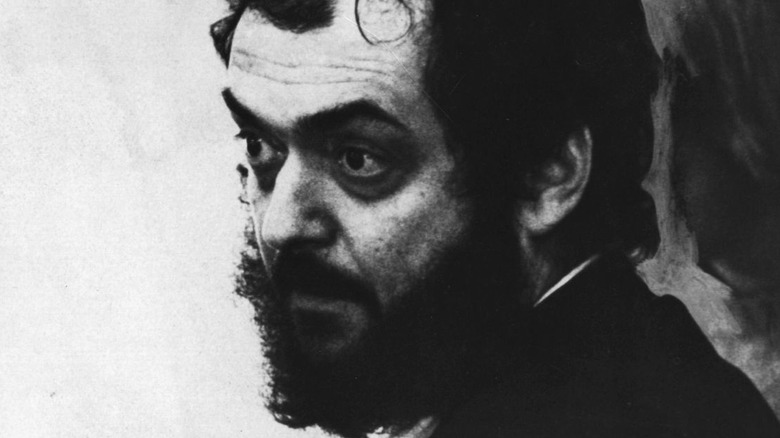What Stanley Kubrick's On-Set Behavior Was Really Like
With some of cinema's most famous and unsettling pictures under his belt, including "The Shining," "A Clockwork Orange," and "2001: A Space Odyssey," Stanley Kubrick has earned a place as one of the most memorable directors to date. His style often produced an unsettling atmosphere as his use of tracking shots and relative lack of music created immense tension and suspense (via The Selvedge Yard).
As for Kubrick as a person, actors have had mixed opinions over the years, according to The New York Times. Some remembered him as a quiet yet confident director, like actors Marie Windsor and James Earl Jones, while others such as producer, dialogue coach, and actor, Richard Anderson, remembered him as an exceptional perfectionist. Anderson recalled one occasion where he shot 84 consecutive takes in the process of getting a scene 'right' (taking so many takes was something Kubrick was not shy of doing per Film School Rejects). For at least some actors under Kubrick's charge, his methodology could be soul-crushing and even mentally harmful in the long term.
Working for Kubrick could at times lead to severe emotional trauma
Tim Colceri was originally the actor set to play Sergeant Hartman in "Full Metal Jacket." In preparation for the role, he was kept confined to a hotel room for a year of the film's production so as to not become attached to his fellow cast members (via The Hollywood Reporter). However, while Colceri is a Marine who served during the Vietnam War, he was not an actual drill instructor during the war like the set's technical advisor R. Lee Ermey (via SBS). Ermey's clever use of advisory footage as a de-facto audition tape after several rebuffs from Kubrick won the director over, while Colceri got the consolation prize of the infamous door gunner role for his psychologically strenuous efforts.
Where Colceri felt that his year's worth of work and investment had been for nothing, Shelley Duvall arguably suffered even deeper psychological scars years earlier. Kubrick would make her repeat takes to the point of physical exhaustion, and even explicitly instructed those on set to not extend any sympathy toward Duvall according to the Vintage News during the 56 weeks it took to complete the film. While her mental health afterward was not entirely given fair representation by her 2016 interview with Dr. Phil, she nevertheless became an increasingly reclusive figure after her experience with Kubrick (via Today).

